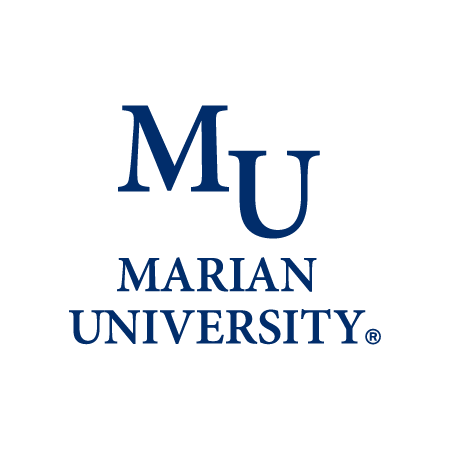Notice of Nondiscrimination: Marian University does not discriminate on the basis of race, ethnicity, color, sex, gender, gender identity, sexual orientation, religion, creed, national origin, age or disabilities in the selection of administrative personnel, faculty and staff, and students. Placement rates are gathered from data collected from graduates within six months of graduation.
Students may make a complaint to the Indiana Commission of Higher Education. Marian University is sponsored by the
Sisters of St. Francis, Oldenburg, Indiana.
